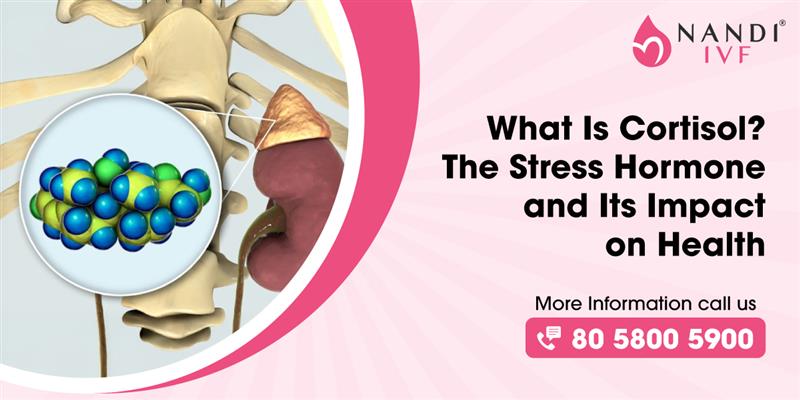

Have you ever wondered why your body suddenly feels “on alert” when you are stressed, even if nothing dangerous is actually happening? That’s cortisol at work- the hormone your body releases when life feels overwhelming. Although cortisol is essential for survival, the real problem starts when stress becomes a daily companion, and here’s where things get interesting: cortisol doesn’t just affect your mood or energy levels; as per the doctors from the top IVF centres in Delhi, it can deeply influence your reproductive health and fertility too.
How? Let’s break this down for you comfortably and vividly!
Scientifically speaking, Cortisol is your body’s primary stress hormone that is produced by the adrenal glands. You can think of it as your internal alarm system that helps you stay alert, energized, and ready to “fight or flee” because cortisol rises when you are stressed.
This mechanism is perfectly fine in short bursts, but chronic stress is when cortisol becomes less of a helper and more of a troublemaker. In fact, according to the American Psychological Association (APA), nearly 77% of people report experiencing stress-related physical symptoms. (Source) No wonder we are feeling tired, wired, and overwhelmed all the time.
When stress is high, your body shifts into survival mode, while redirecting the energy away from functions that it doesn’t see as essential- this includes reproduction. Here’s how things play out:
Your body is smart; it won’t prioritize reproduction if it senses danger (even if the “danger” is a work deadline or traffic jam).
A healthy cortisol rhythm can keep you active in the day and calm at night, but when levels stay high for long periods, your body pays the price. Here’s what elevated cortisol levels can lead to:
The good news? Cortisol can be balanced with small, consistent changes:
Cortisol isn’t the enemy because it’s just doing its job. But tuning into your stress patterns, listening to your body, and supporting your hormonal health can make a world of difference, especially if you are planning for a family. Need help with managing stress while you are trying for a baby, or need expert advice to diagnose and treat reproductive issues? Contact our team at Nandi IVF today!
1
2
3
4
5
6